I just got home from a weekend of judging at Apex Gaming, in Caldwell, Ohio – which, depending on where your allegiances lie that day, may or may not be the central home for competitive Magic in the Midwest.
Not bad for a town with (as far as I can tell) approximately one intersection, two hotels, and three restaurants.
When I moved to Columbus at the tail end of last year, I decided I was officially Too Old for 12 hour drives, and for sleeping in anything but a bed. I was making a clean break with that kind of degen grinder life, and I promised myself I was turning over a new leaf. I was looking forward to being healthier and happier by making better choices. I’ve been cooking more, eating real meals, and making sure to get a full nights sleep. The old me couldn’t come to the phone.
So anyway, I got about two hours of sleep on Friday night, rolled out of bed, and grabbed a banana and a can of coke for breakfast on my way out the door.
Whoops.
Anyway.
I had tried to go to bed at a reasonable hour, but just couldn’t fall asleep, for no clear reason. After a few hours tossing and turning I eventually gave up on sleep and read some classic pieces of Magic writing, inspired by a recent episode of Dominaria’s Judgment. Let me tell you, The Grind is still pretty powerful stuff fourteen years later, and it hits different at 3 am, especially part 2.
Tangent: I deeply miss the old days of Magic writing. Some of my earliest memories (not just Magic memories, but memories, period) are puzzling over the “can you win this turn?”-type puzzles in Scrye or Inquest. In high school, I remember going to the library before classes to print articles off of Brainburst.com, to read throughout the school day. Reading my name and winning decklist in an article by Patrick Chapin on SCG’s homepage meant the world to me, at the time.
Half the reason I wanted to start this blog was to do some of my own writing again, and hopefully encourage some other folks to do the same. When I started moving from playing to judging there were still a lot of people writing about it. Writing reviews and tournament reports used to be a much larger piece of the culture, What’s Up, Docs? was invaluable, and the odd report here or there gave newer judges a peek into the past. Today it’s largely fallen by the wayside, and sometimes I worry we’re losing something important.
End tangent.
I was taking a bit of a chance on my carmates to this event. One was an L1 I had briefly met at a recent conference I had hosted, and the other was a player I’d seen at several events. Both seemed nice enough, but it occurred to me that they might be the worst so I was glad to be testing the waters with a 90 minute car ride instead of something longer. After my recent move, I am still working on getting settled into the new area so this seemed like a good spot to take a chance.
The only bummer was the L1 had shared they had a bad experience with a player at a recent event, and were pretty uninterested in judging for the moment – maybe even going into player mode permanently.
It turned out they were, if anything, too cool, so I wasn’t able to catch any more zs in the car. After giving them an introduction to (and dramatic reading of) the classic bit The Standoff in Honolulu, we were pulling up and it was go time.
The Staff
For both Saturday and Sunday, I had three floor judges on staff – two folks on both days, and one person working Saturday only, being replaced by a fresh face on Sunday. With staff of that size, I didn’t think it made sense to try to have teams, so I made each judge the “point person” for a task.
I split duties up like this:
– Round Turnover
– Deckchecks
– Side Events
Putting someone in charge of side events seemed like the most important thing. The higher up the food chain you are at an event, the more important it is you can drop a current task and become free. If you’re in the middle of a task and something pops up that needs your attention now, you have to either leave the task unfinished, or pass it off. That can often cause a real delay, so when possible, it’s important that you’re taking on the right tasks for your position on the org chart for the day. Team leads are authorized to take care of some things that floor judges aren’t, and head judges can take care of more than team leads.
For example: suppose you’re a team lead at an event. You take on a task that will take five minutes, that a floor judge could have handled. As you’re one minute into the task, another floor judge comes up and says they need approval for a backup. There are a few options here:
- You could tell the floor judge to wait for four minutes until you finish the task,
- You could call over a different floor judge and bring them up to speed so they can take over the task you’re on,
- You can tell the judge you’re busy and they have to go find another team lead
None of these options are great – it would have been better if a floor judge had been doing the task from the beginning. That way you as the team lead would have been free, and could have turned your attention to this backup right away.
I also considered whether to have the tasks be the same for the two judges who were on both days, or change things around. If tasks are the same both days it can help judges get some practice with the task and hopefully take in some feedback they got on the first day and iterate on things Sunday, which can be helpful. On the other hand, sometimes judges get bored doing the same thing again and again and it would be more productive to have them rotate around. For this weekend, I thought all my judges were solid enough at all the things that I’d rotate them around, so they would get a chance to do all the things.
Some real life things had demanded a lot of time and attention over the week leading up to the event, so I hadn’t found time to send out my usual pre-event communication (another dying art). Between that not happening and sleep deserting me Friday night, I made a pretty big mistake on Saturday morning: I wasn’t clear enough to the floor judges about what I was expecting from them.
As a result, the judge I gave Round Turnover to didn’t realize at first that wasn’t just a fancy name for End of Round, but I wanted them also to post pairings…which would mean they’d need to have some tape loops set up. Pairings for round one ended up just spread across the judge’s desk – not the end of the world, but certainly an unforced error.
Similarly, I made sure another floor judge knew they had Deckchecks responsibilities, but I didn’t also spell out that they needed to compare the paper and online lists to make sure we had a decklist from every player. As soon as I asked about it in round two the judge was able to understand what I was asking for, why it was important, and quickly take care of it, but I could have mentioned it to them earlier.
Saturday judge staff
The Calls
There were a surprisingly-large number of interesting calls and situations across the weekend, considering each event was about 100 players.
1 – NAP controlled a Blood Moon, and AP played a surveil land tapped, pointed out their trigger, NAP gave a thumbs up, and AP looked at the top of their deck. They were deciding what to do with the card when the players realized the issue and called me over. Easy LEC because they saw a card they weren’t supposed to, right?
Not so fast! We want to look at the first thing that went wrong – in this case, that was the land entering tapped because the Blood Moon was forgotten. AP applied a replacement effect that shouldn’t have existed. That makes this a GRV (same fix though – we’re going to shuffle the card away into the random portion of the library). So we’ll just give the AP a Warning for GRV, and NAP gets…?
The IPG’s last paragraph on handling GRVs discusses when to give one player a GRV and the opponent a FTMGS, and when we give both players a GRV. Basically, if Alfred makes a mistake and Natalie is off in la la land staring at the ceiling, it’s a GRV for Alfred and a FTMGS for Natalie. But if Alfred and Natalie work together to make a mistake, they both get a GRV.
Either way, Alfred did something illegal so he gets a GRV, simple as. In the first case, Natalie needs to pay a little more attention to the game, and we give her a warning as a reminder she has to make sure her opponents are taking legal actions. Just closing your eyes and tuning out when its not your turn is Not Great. In the second case, Natalie has changed the rules of the game in some way. When you change the rules of the game with your card from your deck, you’re responsible for making sure your opponent plays the game according to the new rules you set up. Some of the poster children for this clause are Thalia or other hatebears and the War of the Spark ‘walkers that restrict the opponent. Blood Moon similarly changes the rules of the game, so what we have here is a GRV for both players.
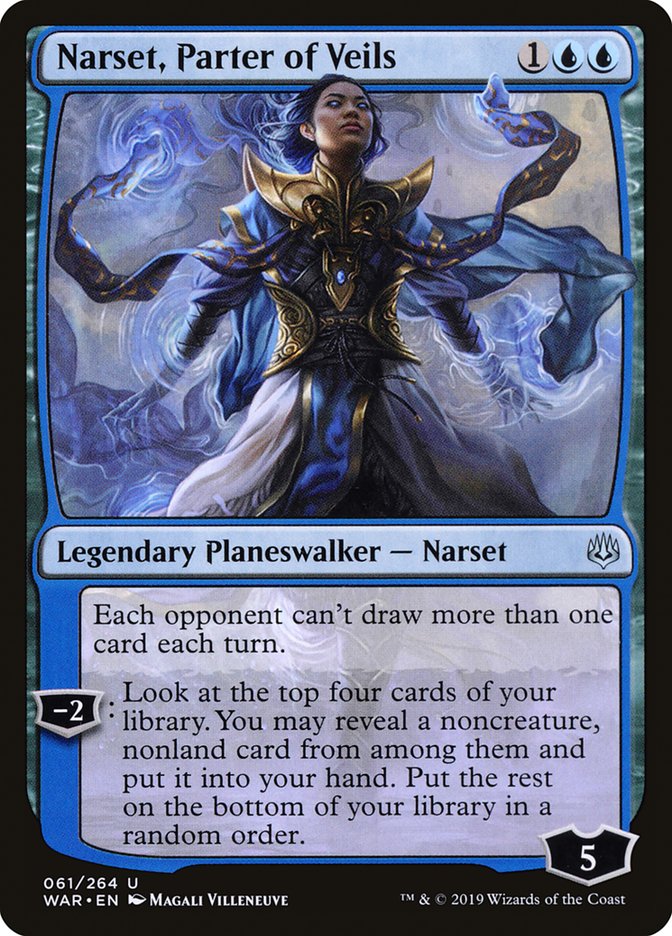
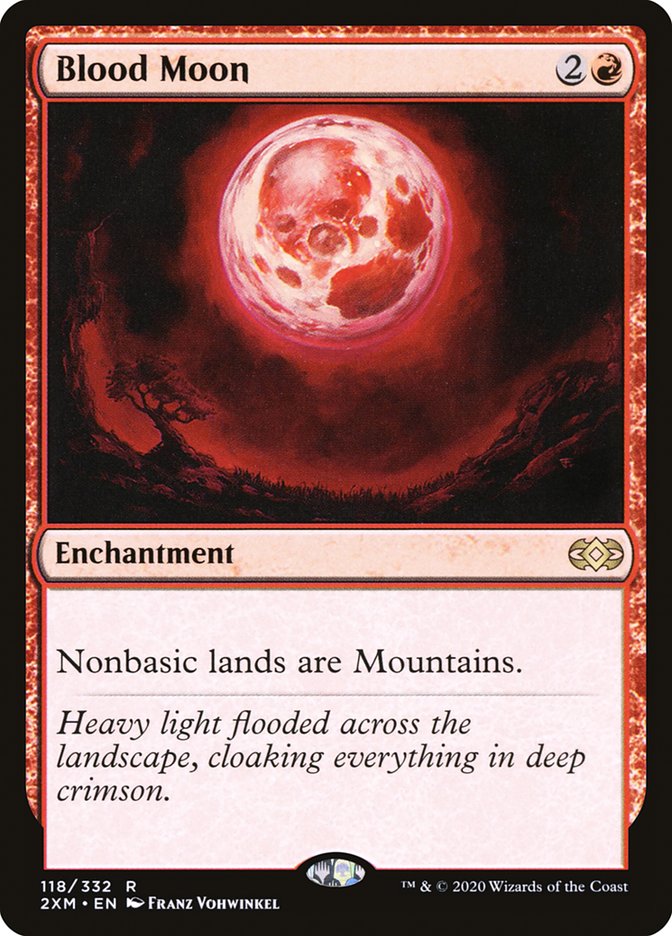
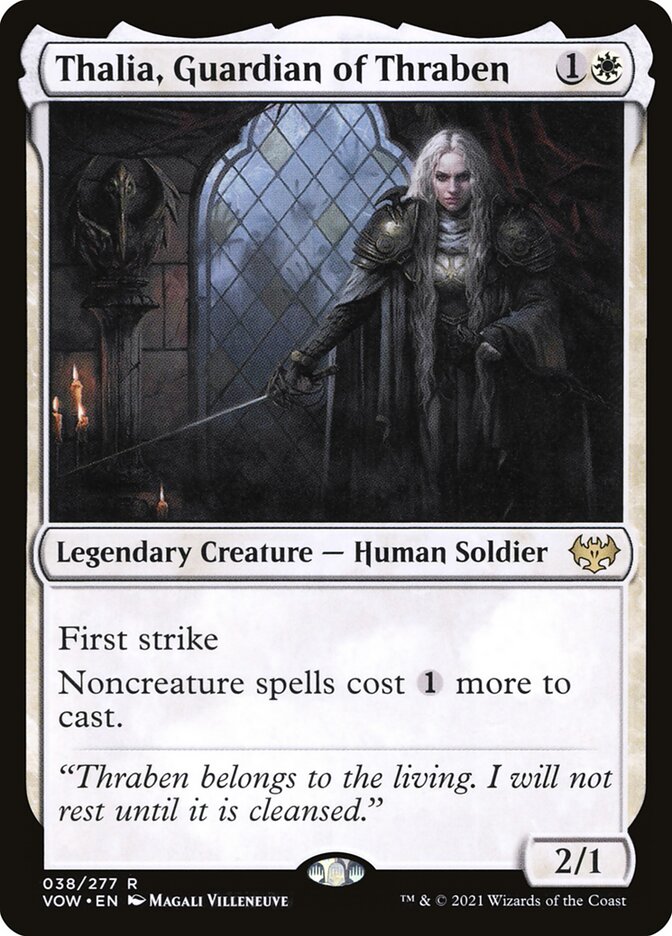
2 – For rules calls, the card of the weekend was easily Ocelot Pride. I’m not sure we ever went two rounds without an Ocelot Pride question. Dress Down, the former number one troublemaker, seems to be seeing less play than it used to, or at least the cards that combine with it to make really weird situations are (Dryad of the Elysian Grove, Magus of the Moon). Maybe it’s just that players have gotten used to the strange interactions by now. Whatever it is, we only had one or two of those, and what felt like dozens of the same Pride question, again and again: AP has nine permanents and creates the 1/1 token in their end step. Do they get the benefit of having the city’s blessing?
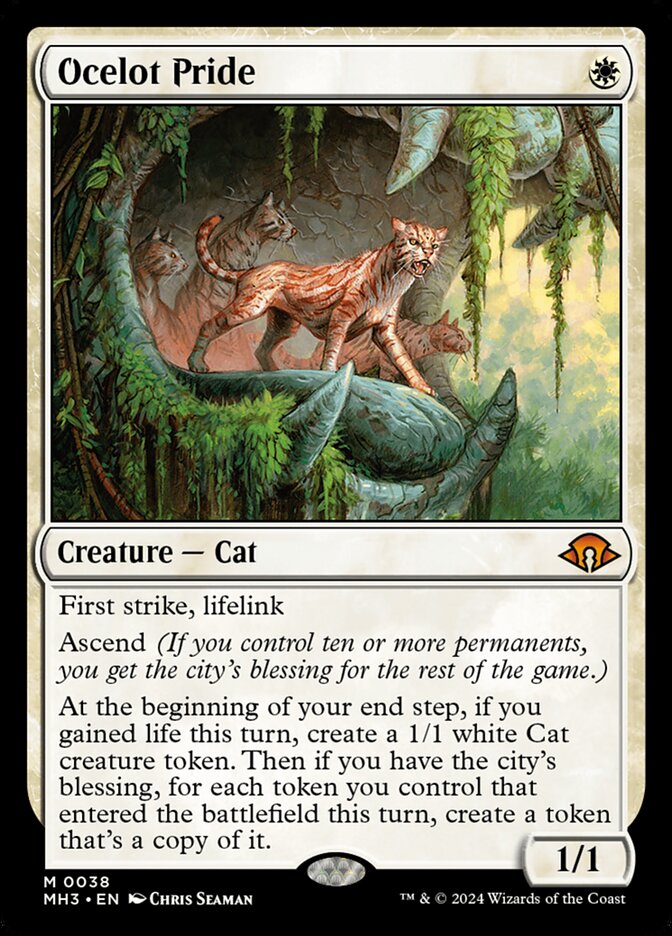
It’s a good question. The city’s blessing hasn’t been a tournament staple in years, and many players at events today probably haven’t played with it before. And when it was around last time, there was nothing as weird as gaining the city’s blessing during the middle of an ability resolving.
So, let’s go looking for some answers. Sometimes it can be tricky to tell one type of information from another, but thankfully, the MTR takes it pretty easy on us on this one: a quick control+F for “City’s Blessing” will tell us it’s status information. That’s good to know, but doesn’t answer the question.
Over in the CR a couple of relevant rules can be found:
604.1: Static abilities do something all the time rather than being activated or triggered. They are written as statements, and they’re simply true.
702.131b: Ascend on a permanent represents a static ability. It means “Any time you control ten or more permanents and you don’t have the city’s blessing, you get the city’s blessing for the rest of the game.”
Gaining the city’s blessing doesn’t use the stack, and it’s not a state based action. It’s just true or not. So, when the Ocelot makes a token which happens to be the tenth permanent, the player gets the city’s blessing right away – during the resolution of the ability. Because of that, the player will get the benefit for having ten permanents.
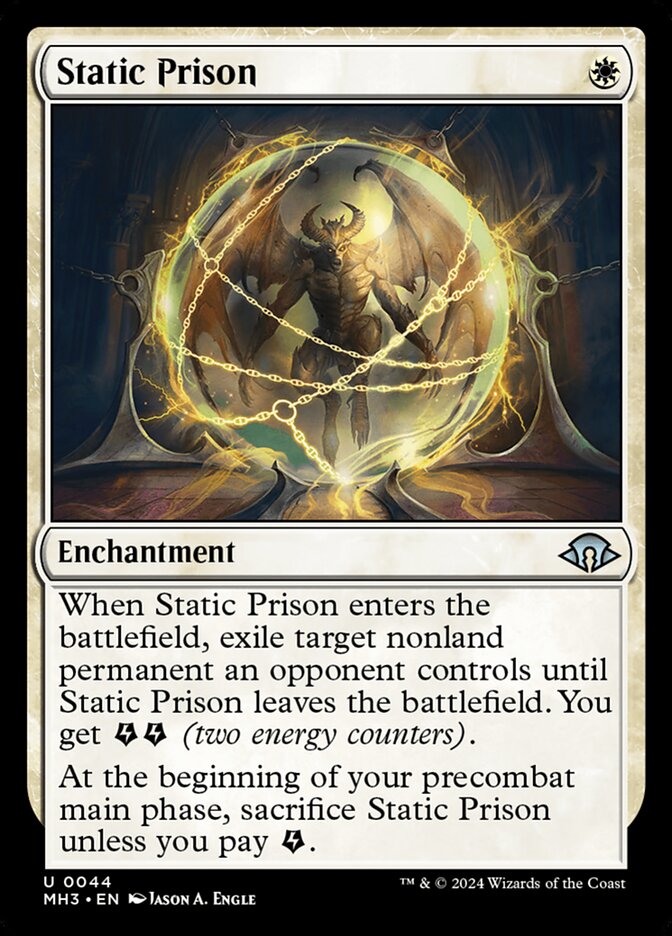
3 – On the policy side, the card of the weekend was certainly Static Prison. The latest Oblivion Ring variant is seeing play in the whole gamut – RW/Mardu aggressive decks, jeskai control decks, and even in sideboards of combo decks.
The Prison is a good case study for illustrating how we decide whether a missed trigger is deserving of a Warning or not, as it has both a detrimental and a non-detrimental trigger.
The relevant question in deciding to give a Warning or not is: are we playing this card because it has the trigger, or even though it has the trigger?
Generally speaking, exiling your opponent’s stuff for a single mana and getting more energy is a good thing, and needing to spend energy or lose your thing is bad.
So Static Prison’s enters the battlefield ability is non-detrimental, and shouldn’t come with a Warning; while the second ability is detrimental and does merit a Warning.
What missing the second ability does not merit, however, is an automatic sacrifice. Gone are the days of default actions for missed triggers, forgetting to pay for this or a Pact does not signify a player “chose” the other option…the opponent can point out the trigger if they want to and then it will be added to the bottom of the stack, like most anything else.
Going on the bottom of the stack is an easy bit of policy to miss, because it doesn’t come up in a relevant way very often, but it’s still good to know. Most of the time when players realize a trigger has been missed, the stack is empty. Even when that’s not true, it’s rare that it matters where on the stack the trigger goes. I’ve been judging for nearly eleven years and I only recently saw this matter for the first time I can recall: a player had three mana available and a Nadu trigger on the stack when their opponent pointed out they had missed their upkeep Summoner’s Pact trigger. Because the trigger went on the bottom of the stack, the player got to roll the dice on their Nadu trigger hitting a land to let them pay.
4 – I had a situation where a player had tapped a Mana Confluence, but had not marked themselves down a life point. Given they were at five life, controlled no fliers, and their opponent had a four power flier, it seemed worth asking a few extra questions.
“How do I get better at investigations?” is a decently common question at events. Investigations are hard. The joke I’ve heard (and I want to stress again that this is a joke), is that there are about fifteen people in the world who aren’t awful at investigations, and Kevin Desprez counts for two…and he trained another nine on the list.
Besides linking to the great article series Collateral Truths (1, 2, 3) and recommending you give it a read, my own brief advice is to ask a couple of questions on any call that seems like it’s going to result in a penalty:
- Who committed the infraction?
- Who benefited from the infraction?
- How much did it matter?
In this situation, I saw that 1) the person who made the error was also the one to benefit from it, and 2) it seemed like it could be extremely relevant – but I wouldn’t have noticed that if I hadn’t taken in the board state and checked the life totals.
Quick Hits
- When speaking with a player away from the table, it’s a good idea to try to position yourself so you can still see the opponent at the table. You don’t want to bring the player back to their seat, only for them to say they think their opponent drew a card/untapped a land/etc while no one was there.
- It’s natural that a player might wonder what their opponent was asking a judge about when away from the table, or be worried they’d just been accused of something nefarious, or what have you. When you’re in school and get paged to go to the principal’s office, everyone assumes the worst. So I like to say something like ~”no problem, just a quick rules question” when I bring the player back to the match.
- Missing a saga uptick is not fixable via a partial fix. It’s a GRV – we either back up or play on.
- Cavern of Souls is likewise not fixable via partial fix. Someone forgetting to name a creature type for Cavern is not the same as forgetting to name a card with something like Pithing Needle or Meddling Mage.
- It’s always better to take a moment to get a second opinion than to potentially give a wrong ruling. The time it takes to sort out an incorrect ruling is substantially more than the time it takes to get a sanity check. That said, it’s also important to know what is going on in the match before grabbing a team lead or HJ. If you loop in someone else for a rewind, you two talk it over, go back to the match, and then you’re surprised to learn the GRV actually took place two turns ago – that’s adding extra time to the clock. Haste makes waste.
- For LGS events, there’s basically no reason to have a player meeting. It’s better to get things going than take the extra time and make players shuffle around again, just to get no-shows dropped before pairing round one. The world will continue to spin if an RCQ gives an extra bye or two in round one due to players pre-registering and then not showing up.
- When attempting to submit their decklist online, a player had accidentally typed all 75 cards into the maindeck spot. They realized their mistake and came up to the judge station as we were posting pairings for round one. Rather than take a lot of time to argue with the software now that decklist submission was closed or make the player fill out a paper decklist, I just took a photo of their physical sideboard, sent it to the deckcheck judge, and got the player on their way. That kind of quick fix doesn’t always scale well to larger events but is a good option for smaller events, as it saves a lot of time and is a better player experience.
- I made a point to make time to chat with my L1 carmate, and he said he’d changed his mind about giving up on judging. No more sailing into the sunset. He was going to stay a judge, and had in fact applied to an event or two. Whoo!
Gremlins in the Wires
As far as I’m concerned, most technology since the telegram was a mistake. We tricked rocks into thinking, and now I have to send emails? Please. And don’t even get me started on Bluetooth.
Anyway.
Our scorekeeping software had a few hiccups over the weekend, which presented some interesting challenges.
At one point, the cEDH side event had to be paired by hand because the software was trying to give the only 2-0 player the bye in round three. Thankfully, my stellar side event judge handled that so quickly and easily I didn’t even hear about it until afterward.
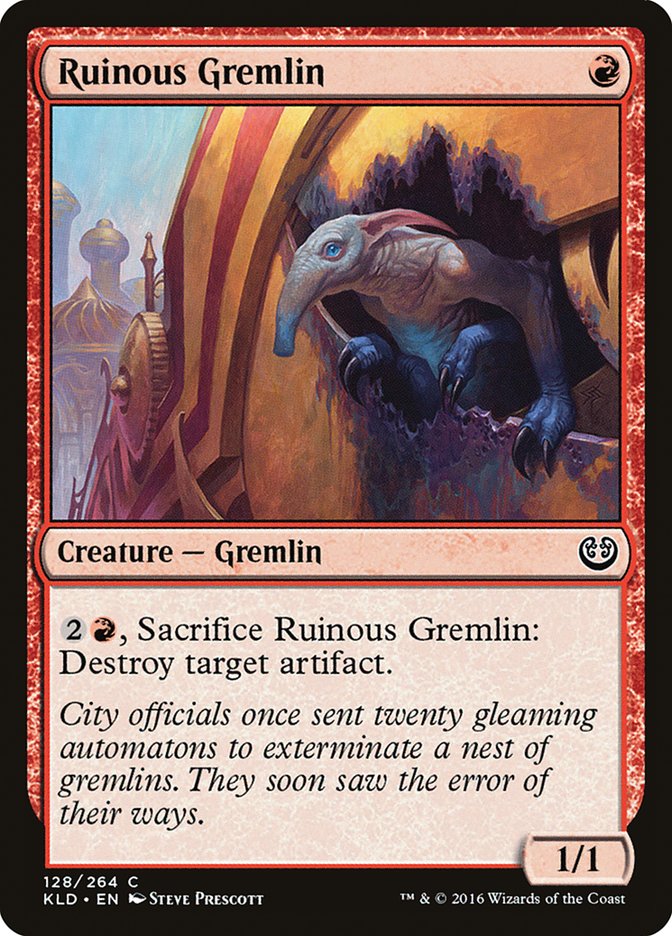
Over on the main event, on Saturday, the pairings for the final round had entirely too many pair-downs. Thankfully, we noticed this before pushing the pairings out to the players, so we didn’t have to make players shuffle around again for a re-pair. After poking at it for a few minutes, the scorekeeper believed they had a fix – treating the last round like any other Swiss round, instead of attempting power pairings. I took a quick glance at the new pairings and decided it seemed better than making players wait for who-knew-how-long for a perfect set of pairings. I made an announcement so players would know what was going on when deciding to play or potentially draw for the final round and got the event moving forward.
On Sunday, however, we did have to have a long pause. During the final round of Swiss a judge noticed their friend’s tiebreakers seemed too low, so they did some math and confirmed their suspicions: multiple players’ tiebreakers were wrong. As the last result came in we had final point totals that looked like this: 19, 18, 17, 17, 17, 16, 16, 16, 16, 16, and 15 points went from 13th to 23rd. This meant that while first and second place were not in question, tiebreakers would certainly matter for some play/draw options, who got prizing for finishing 9-16, and (most importantly) which three of the five 16-pointers would make it into the quarterfinals. Here, just going forward with imperfect pairings to save time and give players a better experience was not an option.
There are a couple of key things to look at in a situation like this:
- How much does the software issue impact the fairness of the event? Issues exist on a scale from “huh, that’s weird,” to “players will riot over this (and I don’t blame them).”
- How much time will it take to fix? At some hypothetical end point, the cure is worse than the disease. If the problem is going to take four hours to fix it’s probably better to just let it ride than try to fix it.
- Will the problem be wrapped this round, or continue to make waves throughout the rest of the event?
I let the players know we were doublechecking the final results by hand so they’d know what was going on instead of sitting around wondering and waiting, then joined the judges who were already math-ing up a storm. The judge who had first noticed the error seemed to have a good grasp on what he was up to, so rather than get underfoot or try to take over, I let him remain at the helm and started doing division on his command. And through it all, I deeply appreciated knowing sides was going to be fine even if I didn’t check in for a while because I was focusing on this.
One simply must love judges
The end result of this ~twenty minute delay was…nothing whatsoever. As it turned out, while several tiebreakers did change, none of them changed enough to actually tweak the final standings. But that doesn’t mean it was a mistake for us to pause and do the double checking, any more than it’s a mistake to investigate a suspicious GRV just because it doesn’t end in a disqualification. “Don’t be too results-oriented” applies as well in judging as it does in playing, it turns out.
Despite the hiccups, I would have no objection to using the software again. The software had some big benefits over other scorekeeping software I’ve seen, which helped the event go very smoothly in other places across the weekend where other platforms would have left something to be desired. Having the developer there as our scorekeeper was great, and they were very receptive to feedback. To my understanding the problems have already been fixed and they have been great about involving judges in the development process, which has been greatly appreciated.
As soon as the math was done, I got the Top8 seated, thanked the squad for their great work, and sent them home. There were no more fireworks in the remaining rounds.
Heading Home
Thankfully, one of the carmates had made it all the way to the finals, alleviating the usual judge-player-carpool guilt of making everyone wait around. The hotel breakfast that morning had been expectedly abysmal, so we’d ended up at Arby’s at the start of the day. Now, with the day done, it was time to turn all that around and get back to the high life – we went for dinner at McDonald’s.
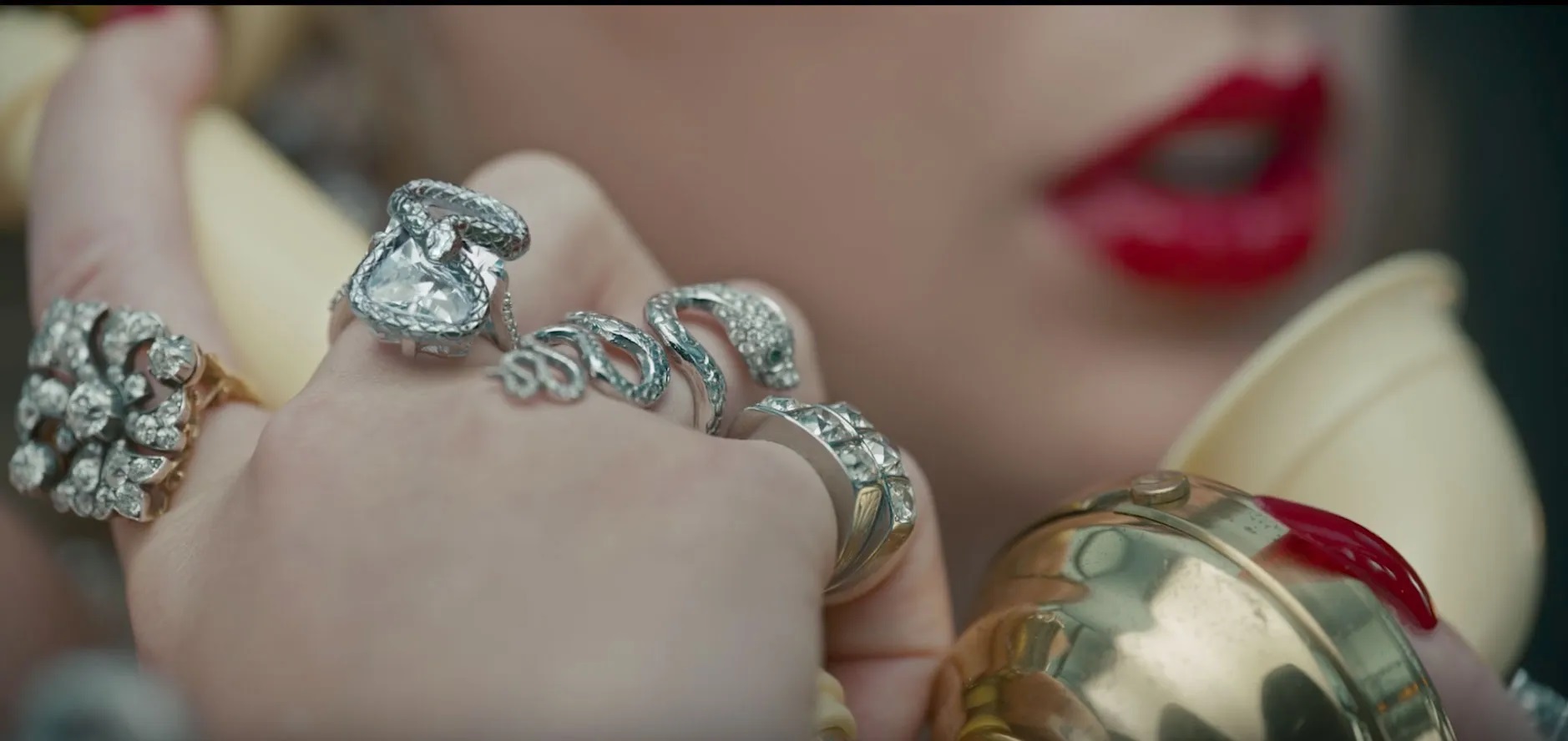
Whoops.
Anyway.
In true old-school tournament report style, I think it’s only right to end with some props and slops.
Props:
- The great judges I got to work with over the weekend – you all worked hard, had good initiative but also checked with me when appropriate, and kept things on track even when we had some bumps in the road. Thank you
- Apex for bringing me on as head judge
- Our scorekeeper. True, we had some significant problems – but you stayed helpful and looking for solutions when a lot of people would have gotten bummed out and then tuned out. That counts for a lot, and I appreciate it
- The carpool squad for a great time – I’m looking forward to the next road trip
- My bed (Sunday night)
- The writing of Jeff Cunningham
- The friends who made some very amusing photoshop while I was at the event (below)
Slops:
- McDonald’s. You know what you did
- Hotel breakfast – do you know how bad you have to be for Arby’s to be the better option?
- Default action triggers. Good riddance
- My bed (Friday night)



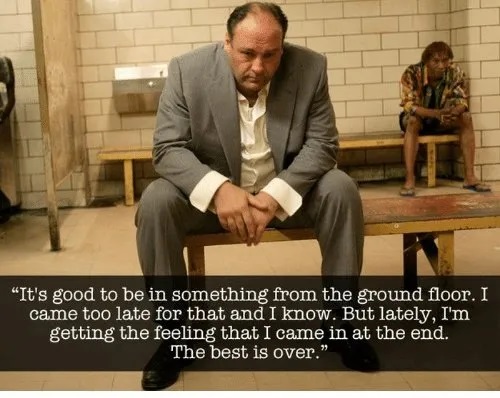
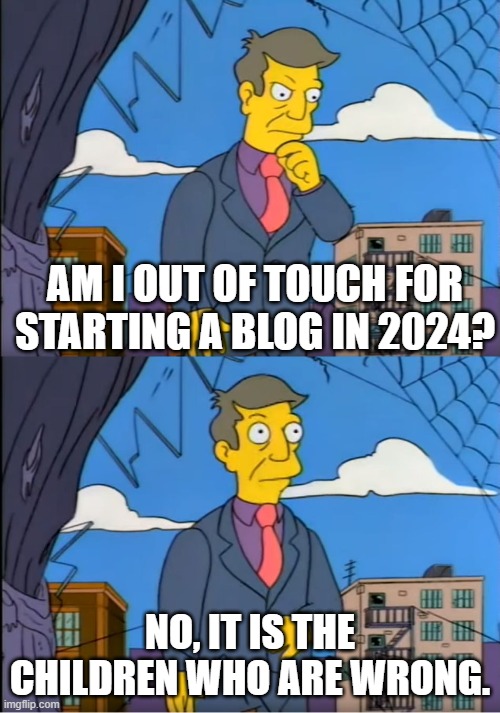
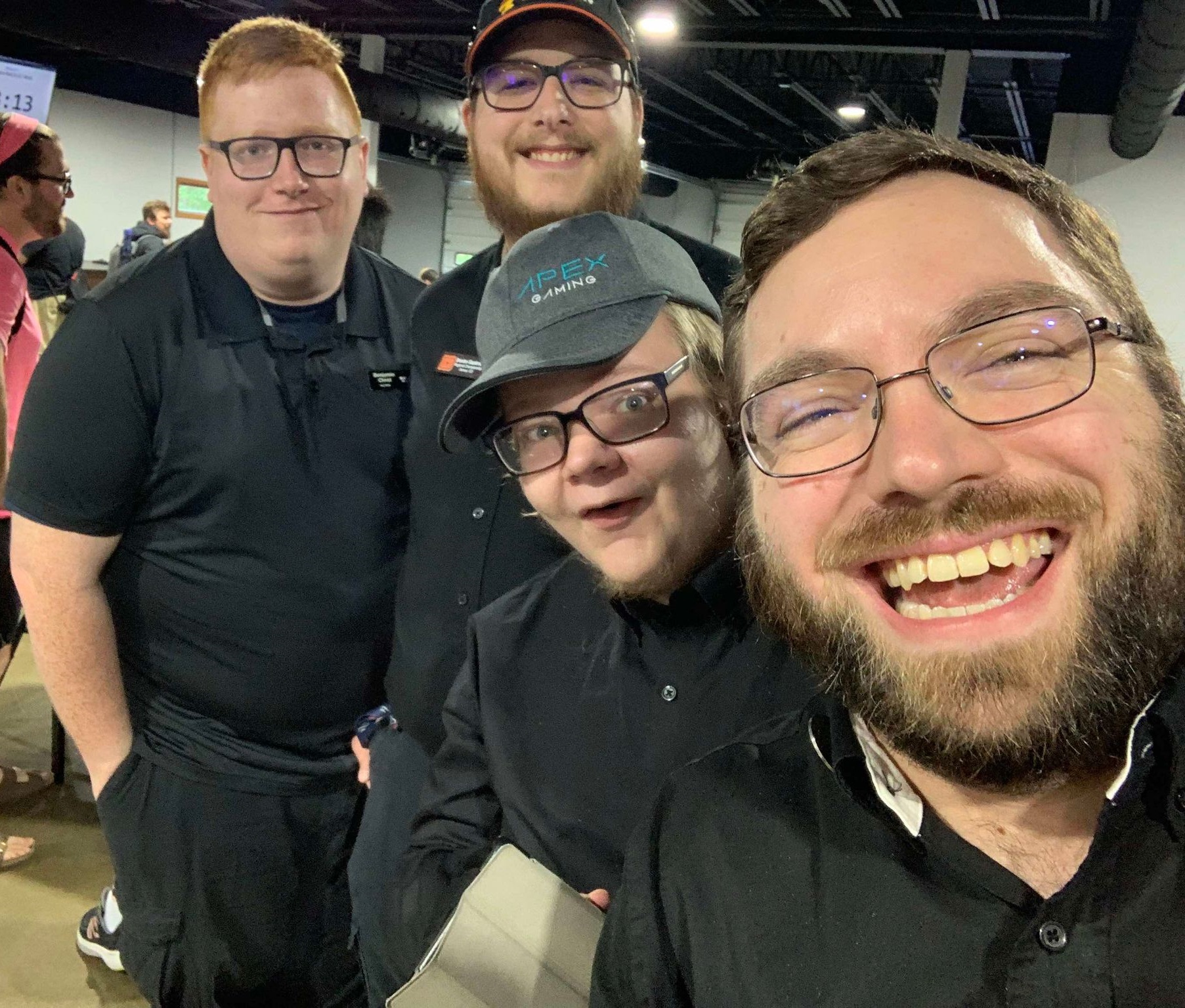

Ty !!
“Cavern of Souls is likewise not fixable via partial fix. Someone forgetting to name a creature type for Cavern is not the same as forgetting to name a card with something like Pithing Needle or Meddling Mage.”
I did not get this, so I double checked IPG:
“If a player made an illegal choice (including no choice where required) for a static ability generating a continuous effect still on the battlefield, that player makes a legal choice.”
I suppose you are saying that, since Cavern of Souls has not a static ability, this partial fix cannot be applied.
To me, it seems a case of “letter of the law” versus “intent of the law”. I would allow to name a creature type anyway, say 99,99%.
What do you think?
follow up to last comment, I am adding my personal data-
“Cavern of Souls is likewise not fixable via partial fix. Someone forgetting to name a creature type for Cavern is not the same as forgetting to name a card with something like Pithing Needle or Meddling Mage.”
I did not get this, so I double checked IPG:
“If a player made an illegal choice (including no choice where required) for a static ability generating a continuous effect still on the battlefield, that player makes a legal choice.”
I suppose you are saying that, since Cavern of Souls has not a static ability, this partial fix cannot be applied.
To me, it seems a case of “letter of the law” versus “intent of the law”. I would allow to name a creature type anyway, say 99,99%.
What do you think?
Without knowing what software you were using or even if this is possibly the cause of the tiebreak “issue”. In the past I’ve seen software show tiebreakers once a new round has paired as “live” tiebreakers so they look a bit screwy. You need to check the tiebreakers are correct before pairing the next round (if that’s possible).
Even if the tiebreakers do look iffy, I would caution against manually changing standings even if you are convinced the software is wrong, or someone else is convinced it’s wrong. I’d also be very careful assuming the pairings aren’t correct based on too many pair downs, if the final round is trying to do a position based pairing (1v2, 3v4 etc) it is feasible that it would cause that, but unless you are close to 100% sure that the pairing algorithm is wrong, it’s a lot easier to defend – “This is how the software paired it” – than – “I made changes so that the pairing looked better”. If the event is being run with the “official” software (Eventlink, Melee or something else) then the software is applying it’s algorithms the same for everyone in the event, and it’s possible by manually fixing things you could be introducing other errors through mis-calculation or mis-understanding of how things should work.
Very cool. You bring an impressively deep level of analysis to everything you deal with here. I respect how you share credit with your team, blame nobody, and inquire honestly into your own decision-making process to keep improving. Great to see someone someone nurturing the MTG community in all its forms.
As a final aside—and forgive me if I’m way off base here—isn’t your real name Banes? I feel like I’ve heard that somewhere.